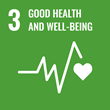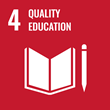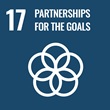
Project information
Design of a Master Erasmus Mundus programme on Chemical Exposome and Human Health : from Research to Decision
(ChemExpo)
- Project Identification
- 101180102
- Project Period
- 11/2024 - 1/2026
- Investor / Pogramme / Project type
-
European Union
- Erasmus Mundus
- European joint masters and doctoral programmes
- MU Faculty or unit
- Faculty of Science
- Cooperating Organization
-
University of Potsdam
University Jaume I
University of Rennes 1
- Responsible person Sarah Lennon
About 70% of non-communicable diseases result from the interplay of host susceptibility and a variety of environmental factors encountered during the lifetime, e.g., chemical, physical and biological agents (air pollution, noise, microorganisms…), behavioural factors (smoking, diet, sedentarism) and psychological, social and economic conditions. Among these factors the study of the daily human exposure to chemical mixtures, i.e., the chemical exposome is a real challenge that is now starting to be incorporated into decision-making processes. The EU commission is actively considering the mixture risk assessment and legislation as a major measure to protect human health. This necessitates enhanced collaboration between scientists and regulators to translate scientific findings into policy. In this context, it is of paramount importance to train high level multidisciplinary scientists who will be able to assess the chemical exposure and its impact on human health and help to translate this knowledge to policy. Students who join this international program will receive a specialisation training in a field linked to the exposome: chemistry/biochemistry, toxicology or bioinformatics. In addition, they will also develop a collective comprehension of exposome-related subjects.
The future consortium will gather five European universities: Rennes (UNIVREN, France), Masaryk (MUNI, Czech Republic), Potsdam (UP, Germany), Jaume I (UJI, Spain) and Cagliari (UNICA, Italy), all members of the EDUC Alliance. The proposed Erasmus Mundus Design Measures project will allow us to conduct all the necessary preparatory activities to design a European Master Joint Degree on the chemical exposome and human health.
Sustainable Development Goals
Masaryk University is committed to the UN Sustainable Development Goals, which aim to improve the conditions and quality of life on our planet by 2030.




